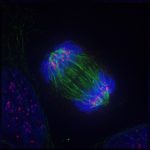Definition
noun, plural: drugs
(1) Any chemical substance administered for therapeutic purposes, diagnosis, prevention of diseases, and relieving symptoms
(2) A chemical substance that is intended to alter a biochemical process for a particular purpose
(3) A psychoactive substance
Supplement
A drug is a chemical substance that is administered or taken to incite a biological effect in the body of an organism. It may be pharmacological in nature (used for health-related purposes) or recreational (which are mostly psychoactive). Drugs render biological effects depending on their composition, dosage, and route of administration. Some of them contain a single active ingredient whereas others are a mix of various chemicals in a single unit. The ingredients may be synthesized or derived biologically (e.g. herbal, marine-derived, animal-derived, microbial, genetic engineering, etc.) or chemically. Drugs for medical purposes can also be classified based on their biological effects: antipyretics, analgesics, antibiotics, antiseptics, hormone replacements, oral contraceptives, stimulants, tranquilizers, statins, etc.
Word origin: Middle English drogge (medicine)
See also:
- medicine
- pharmacology
Related term(s):




